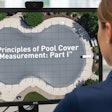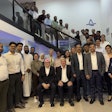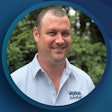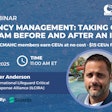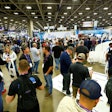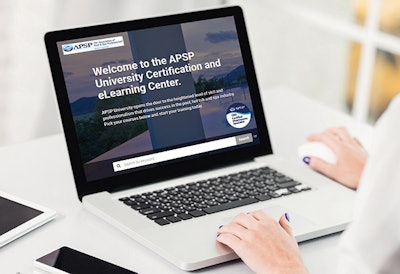
The Association of Pool & Spa Professionals rolled out an online and modularized version of its popular Certified Maintenance Specialist course last November in an effort to bring training to a new generation of pool and spa pros. The other five residential certification courses that make up APSP University are slated to follow suit by the middle of the year. It's an ambitious undertaking, but one the Board of Directors deemed crucial when it approved $1.3 million in funding for the project last June. Now, just a few months into implementation, that investment is starting to show promise.
"As a Board, we made a decision with Rich Gottwald that education was an extremely important part of what APSP provides to the industry, and we have to be prepared to provide that education in all different facets for the incoming generation," says Rich Garbee, APSP board member and vice president of marketing and sales at GLI Pool Products. "Millennials are moving into the workforce, and these people have been brought up with a phone in their hand and a screen in front of them, and they are very, very comfortable in that environment."
Garbee is understandably excited about the association's new direction for education, believing it will revolutionize industry training and help pool and spa companies better compete in today's challenging employment environment. But he deflects credit to Gottwald and his team, who have been more directly involved in implementation. One of those people is Alex Antoniou, APSP's director of education content and workforce development. He's the project leader, and he worked closely with partner Hanley-Wood to get the CMS class up and running and onto students' phones, tablets, laptops and desktops.
"Our goal is to create a modular, online course that is interactive and engaging for the student," Antoniou says. "Traditional training videos can be tedious and after a while, the student is going to tune out. It's hard to keep focus and attention that way, and for some it's hard even in a live classroom setting. So we're excited about this modular, interactive format, where the courses are broken down into bite size pieces, so to speak."
Students are able to do as much or as little as they want in a single setting, Antoniou explains, then go back right where they left off when they want to resume. This way, each student can learn at his or her own pace and complete the course over a matter of weeks.
"Along with being able to sit for as much time as they need, they can go back and review at any time," he says. "Compare that to a classroom session. When that class is done, it's done. But with the modules they have access to the material for 8 weeks."
Antoniou points out that this new course format is designed to appeal to a variety of different learning styles, and APSP hopes to reach more students by adding this new delivery option.
"Certainly online isn't for everyone," Antoniou says. "But, in general, the younger generation is more tech-savvy and more likely to go through the online version."
In addition to its appeal to younger learners, the new format is also a boon for workers in more-remote locations, where classroom sessions can be few and far between. It also cuts out other costs associated with off-site training, including airfare, hotel and food.
Another key contributor has been Maria O'Hara, APSP's director of education. She is careful to draw a distinction between what the association is offering today and the old "online" version, which was a video version of the face-to-face course.
"We really wanted it to be a positive learning experience for our students, and we wanted it to be something where they had to participate on their end, and not just sit back and watch a lecture," she says. "We wanted it to be something that is truly new and unique for the industry."
To that end, the association assembled a taskforce of subject-matter experts from across the country. The group met in the spring of 2017, before funding was even finalized, and began by poring over the CMS course's PowerPoint slides, one by one, looking for ways to improve the content.
"There were significant changes to make sure the course material was accurate, that the standards were current, and that it was all technically sound," O'Hara explains. "Then we sent it over to our partner Hanley-Wood, and Alex and I worked closely with them to create the dynamic self-paced program."
The resulting material includes audio and visual components, of course, but also "knowledge check" quizzes along the way to keep learners engaged. An added benefit of the self-paced course is the end-of-course practice test. The test allows the student to identify and address areas they need more time to study prior to taking the CMS Certification Exam. "These practice tests help build the kind of knowledge, attitude, focus, and judgment they need to answer the maximum number of questions quickly and accurately," says O'Hara. "Becoming familiar with the question types can help build their confidence in their abilities and increase their odds for of passing the exam."
"As we were talking with potential vendors about the project, they told us that the best way people learn online was through games and activities, kind of the drag-and-drop stuff, rather than just reading a screen or a PowerPoint slide," Gottwald adds. "They've learned through the gaming world that keeping someone engaged in that way makes them more likely to learn."
Target Audience
APSP staffers we spoke with all identified certification-seekers as the biggest audience for the new CMS course and the ones that will follow. Those students will buy the courses in pieces or as a whole, which is the more economical approach. But there are still other markets for the modules.
"Maybe somebody has a certain knowledge or skills gap," Antoniou says. "Or it could be for people working at a retail store that just need knowledge about water quality when they interact with customers. Those people can just buy the water quality module. So the number of uses for the individual modules versus the whole bundle is pretty great. Obviously, if you want to get the CMS certification, however, you have to go through all 12 and then take the CMS Certification exam."
Even people outside the industry can benefit from the course. O'Hara says she often hears from home inspectors who need to learn a little about pools and spas in order to do their jobs. Are they going to want to sit through an entire certification course?
"The modules are also good for people who take the exam and fail," she adds. "It allows them to review their strength and weakness report and then focus on areas where they struggled and get some additional practice before retaking the exam."
Rapid Response
So far, O'Hara says, feedback on the new program has been very good, with inquiries and registrations hitting expected benchmarks.
"The $1.3 million investment is for all six courses, and this is just step one," Gottwald says. "So far, so good. People are really taking it up. But no matter how successful it becomes, it will never replace the traditional education that has been a key component of APSP's mission.
"This CMS course and the five to follow are meant to complement our existing face-to-face courses," he adds. "Online is not for everyone, and we know that. Our goal is to offer education and training in all the different formats."
By the time this article is published, the online, self-paced version of the Certified Hot Tub Technician course will also be live, with the rest to follow in rapid succession until the two new Retail courses hit by the end of June.
"This course and the ones we're moving onto next have all been developed by industry professionals, so they're very good at getting workers up to speed on what they will need to do their jobs on day one," Gottwald says. "And now that they're going online, we think it'll be a game changer. We're also working at a Spanish version of the CMS course, with availability expected July 1st. Our members need multiple ways to train their employees quickly, and this gives them a great option."
ONLINE LEARNING, ON-SITE TESTINGAs is the case with APSP certifi cation testing in the past, students who purchase and complete the new version of the Certifi ed Maintenance Specialist course will need to take the CMS Certifi cation exam at one of the approved testing centers across the country. APSP in partnership with PSI Test Centers, a leading testing service, has made APSP certifi cation exams available to test takers throughout the United States and Canada. "This is an important and signifi cant step for our certifi cation program," said Rich Gottwald, APSP President & CEO. "With the demand for qualifi ed pool and hot tub workers growing, we're committed to making our exams more accessible to a wider audience." "With over 70 years of experience, PSI centers formalize and standardize the testing process. They make it easy to schedule exams, provide a comfortable testing atmosphere and accommodate the various needs of test candidates. We have received very positive feedback from our test candidates concerning their experience testing at PSI." said Maria O'Hara, APSP director of education. "We really believe in the integrity of the certifi cation exams and what it means to earn them." |
































